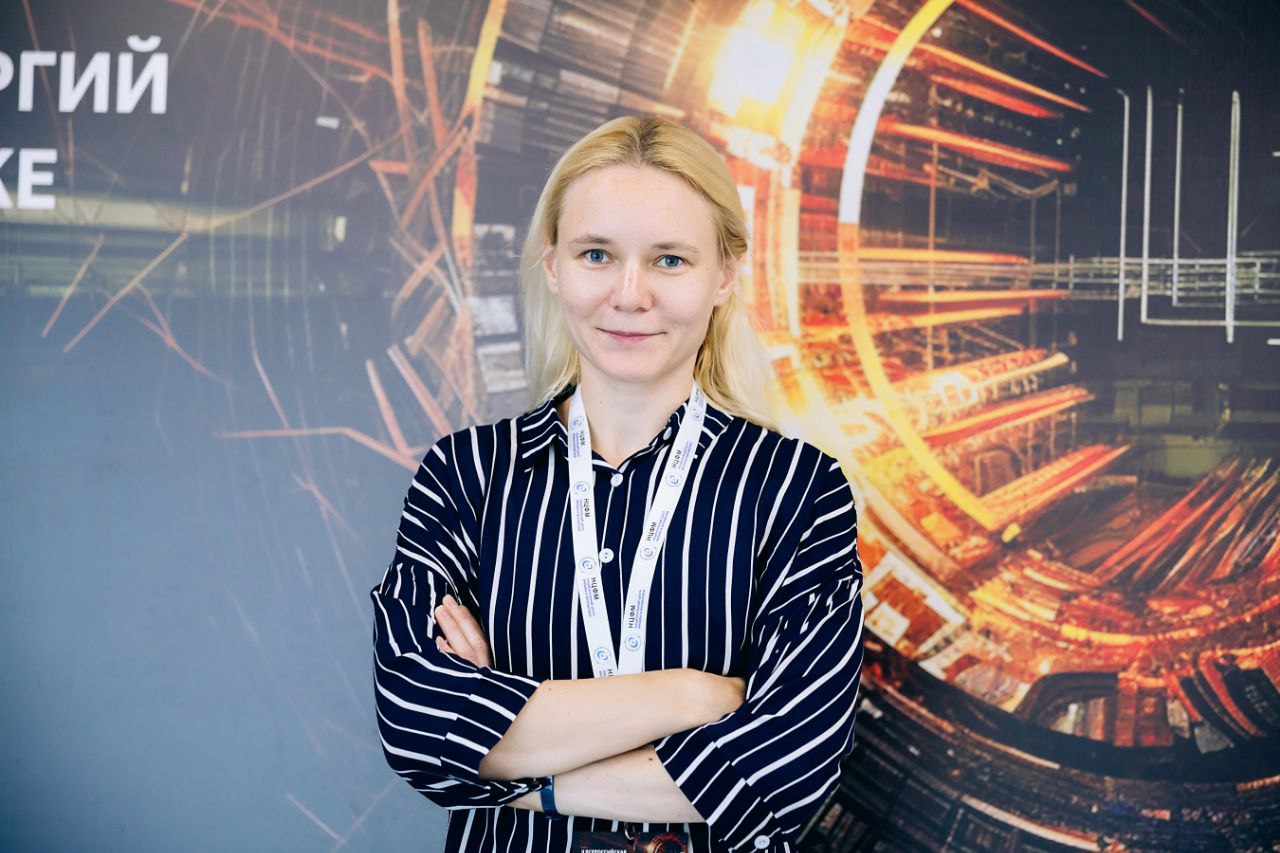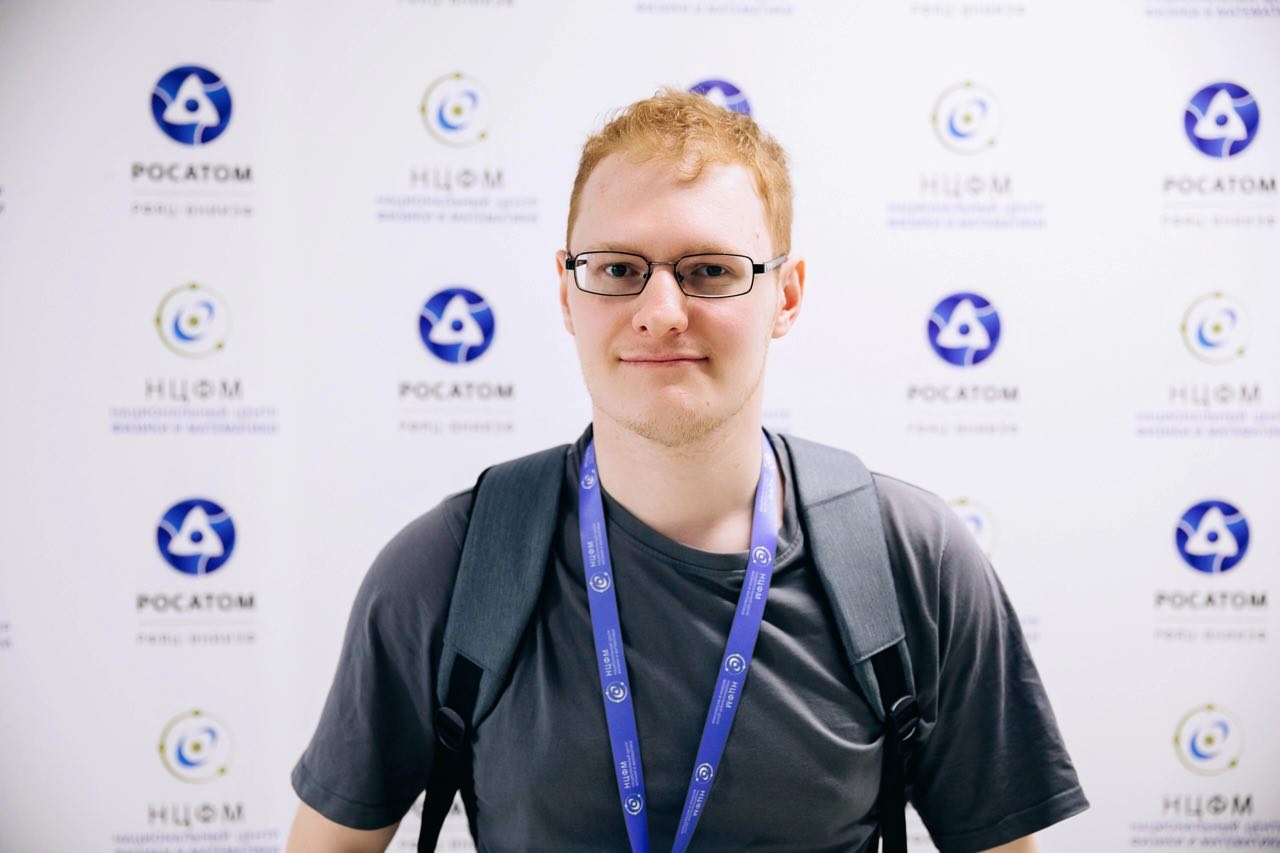At Sarov Technopark, Researchers from HSE Faculty of Computer Science Discussed AI for Data Analysis in Physics
The Laboratory of Methods for Data Analysis of the HSE Faculty of Computer Science, in collaboration with the All-Russian Research Institute of Experimental Physics (RFNC-VNIIEF, Sarov) and the National Centre for Physics and Mathematics, recently held the Second All-Russian School-Seminar on High Energy Physics and Accelerator Technology.
The school was combined with the 24th Kharitonov Thematic Scientific Readings on accelerator technology and high-energy physics.
The sessions were attended by approximately 100 undergraduate and doctoral students from Russian universities and research institutions. Scientists from Russia and China discussed various methodologies for acquiring and processing data. A team of HSE researchers led by Fedor Ratnikov, Leading Research Fellow at the HSE Laboratory of Methods for Big Data Analysis (LAMBDA), taught a mini-course on machine learning methods and their application in particle physics.

Fedor Ratnikov
The primary approach for analysing data from physical instruments involves the use of machine learning methods. When it comes to megascience-class instruments, there is no substitute for ML methods, given their unparalleled speed and efficiency.
LAMBDA researchers Vladimir Bocharnikov, Ekaterina Trofimova and Tigran Ramazyan prepared and conducted practical classes. 'The speed of learning was particularly remarkable: within a brief period, participants not only grasped the fundamentals but also mastered the practical aspects of machine learning which they needed for completing the assignments of the final competition', according to Trofimova,sharing her impressions from the sessions.
Denis Derkach, Head of LAMBDA, introduced the students to some of the diverse machine learning methods suitable for modelling the responses from physical detectors. He noted that the computing resources had been provided by the Yandex Cloud platform.

Denis Derkach
According to Derkach, 'with the help of Yandex DataSphere, an end-to-end ML development environment, it was possible to organise simultaneous training for a large number of participants. Colleagues from Yandex helped both students and trainers to quickly learn how to navigate this new-to-them system. Our team plans to continue this collaboration and to hold a similar school next year'.

Anna Lemyakina
'Sustaining an ongoing dialogue with an audience made up of students, scientists, and researchers is essential for us. Our aim is to enable students, right from their academic years, to access and use the cloud platform's services for addressing real-world practical challenges, and we also want feedback to enhance the platform further', according to Anna Lemyakina, Director for National and Strategic Projects at Yandex Cloud.
The summer school participants shared their feedback as well.
Evgenia Ruleva, engineer at RFNC-VNIIEF

'The lectures by Fedor Ratnikov and the practical classes with Ekaterina Trofimova came as a pleasant surprise. This has been an exceptionally engaging and intensive course, offering us the chance to ask questions, get feedback, and acquire practical skills first-hand. Thanks to the entire team for this impressive start! I will continue studying machine learning'.
Denis Grigorovich, doctoral student at MEPHI

'While it is hardly possible to fully master a machine learning course within a mere four days, many concepts have become clear to me thanks to these easy-to-understand lectures and seminars. Most notably, my exceptional colleagues from HSE have been able, within a brief timeframe, to spark our interest and inspire us to explore the realm of machine learning independently'.
See also:
Final of International Yandex–HSE Olympiad in AI and Data Analysis Held at HSE University
Yandex Education and the HSE Faculty of Computer Science have announced the results of the international AIDAO (Artificial Intelligence and Data Analysis Olympiad) competition. Students from 14 countries took part. For the second year in a row, first place went to the team AI Capybara, which developed the most accurate AI model for an autonomous vehicle vision system.
HSE University and Yandex Education Release Free Online Handbook in Math and Data Analysis
Experts from the HSE Continuing Education Centre, the Master's Programme 'Artificial Intelligence', and Yandex Education have developed and published a free math handbook in data analysis (in Russian). This is the seventh online publication in a series of digital self-study textbooks dedicated to specific IT areas.
Virtual Mozart, Venture Capital Bot, and Educational Video Generation: How AI is Used at HSE University
In mid-November, HSE University hosted a meetup where faculty, researchers, and administrators presented their projects and shared experiences with using AI technologies in education and research. The meeting was part of the continuing professional development programme 'Artificial Intelligence in Education and Research.'
‘Bots Are Simply Imitators, not Artists’: How to Distinguish Artificial Intellect from a Real Author
Today, text bots like ChatGPT are doing many tasks that were originally human work. In our place, they can rewrite ‘War and Peace’ in a Shakespearean style, write a thesis on Ancient Mesopotamia, or create a Valentine’s Day card. But is there any way to identify an AI-generated text and distinguish it from works done by a human being? Can we catch out a robot? The Deputy Head of the HSE School of Data Analysis and Artificial Intelligence, Professor of the HSE Faculty of Computer Science Vasilii Gromov explained the answer in his lecture ‘Catch out a Bot, or the Large-Scale Structure of Natural Intelligence’ for Znanie intellectual society.
HSE and Indian Institute of Technology Delhi Agree on Joint Research Projects
HSE University-St Petersburg and the Indian Institute of Technology Delhi (IIT Delhi), a leading Indian university, have agreed to launch joint research projects in the field of social, political studies, humanities, and data analysis for master's students. On the Russian side, this work will be coordinated by the HSE St Petersburg School of Social Sciences.
‘In the Future, I Expect Rapid Development of Professions Related to Prompt Engineering’
The English-language programme of HSE Online ‘Master of Computer Vision’ will change its name to ‘Artificial Intelligence and Computer Vision’ in 2024. Andrey Savchenko, the programme academic supervisor, shares how the new name will affect the programme semantics, why AI has become the main federal trend in the field of information technology, and what tasks graduates will solve.
Artificial Intelligence as a Driver of Digital Transformation
In December, the HSE Institute for Statistical Studies and Economics of Knowledge and the HSE AI Research Centre participated in UNCTAD eWeek to discuss the future of the emerging digital economy. One of the topics discussed during the conference was artificial intelligence and its applications in driving the digital transformation of industry sectors. The session was co-organised by HSE University.
HSE University Receives Highest Grant under Priority 2030 Programme
HSE University has proved its leading position in the first group of the ‘Research Leadership’ field under the Priority 2030 programme. The university has also received the highest grant for teaching digital competencies to students, demonstrating its educational leadership in the fields of digital technologies and AI.
‘The Future Lies with AI Technologies and HSE University Understands That’
At the AI Journey 2023 international conference in Moscow, a ranking of Russian universities that train the best AI specialists was published. HSE University entered the A+ leadership group, taking first place according to such criteria as ‘Demand for hiring graduates’, ‘Quality of educational environment’, and ‘Activities for the development of school education’. Ivan Arzhantsev, Dean of HSE University’s Faculty of Computer Science, spoke to the HSE News Service about how AI specialists are trained at HSE University and what plans the university has in this area.
‘Every Article on NeurIPS Is Considered a Significant Result’
Staff members of the HSE Faculty of Computer Science will present 12 of their works at the 37th Conference and Workshop on Neural Information Processing Systems (NeurIPS), one of the most significant events in the field of artificial intelligence and machine learning. This year it will be held on December 10–16 in New Orleans (USA).


